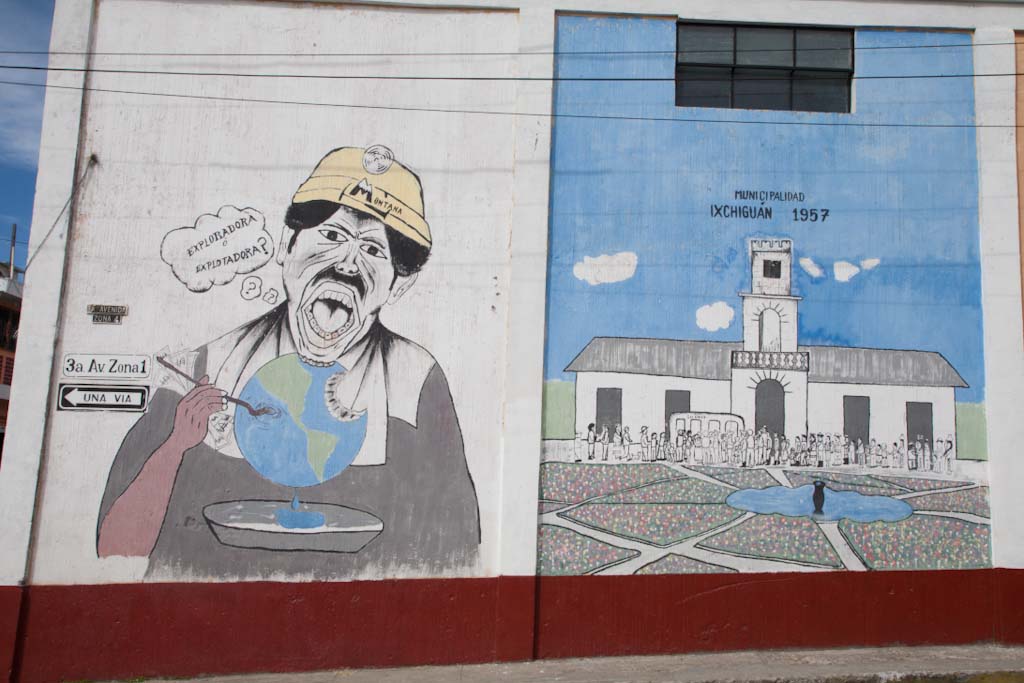"Advent should admonish us to discover in each brother and sister that we greet, in each friend whose hand we shake, in each beggar who asks for bread, in each worker who wants to use the right to join a union, in each peasant who looks for work in the coffee groves, the face of Christ. They are Christ, and whatever is done to them Christ will take as done to himself. This is what Advent is: Christ living among us.
Some want to keep a gospel so disembodied that it doesn't get involved at all in the world it must save. Christ is now in history. Christ is in the womb of the people. Christ is now bringing about the new heavens and the new earth"
Monsenor Romero El Salvador December 3, 1978
"We as a nation must undergo a radical revolution of values. We must rapidly begin the shift from a "thing-oriented" society to a "person-oriented" society."
Martin Luther King New York April 4, 1967
MCC Photos/Melissa Engle
"It is my daily interaction with the extreme rich in view of the extreme poor that makes me demand that we reassess how we might bring a love-centered Christ-philosophy into our American citizenship. A survey was taken in a math class the other day here at school and it was found that, on average, the students represented families that have 13 cars each. Granted, the results were skewed by one of the families owning a dealership, but another kid said, "Well we've got about five cars at our place in Dhaka, 5 cars at our place in the States, and another 5 at our Dubai place, so that's about 15, I guess." It should be noted that those Dhaka cars are taxed with a sales tax of 200%, making them three times the actual price (that tax of course does nothing for the infrastructure of the country). Again, generally speaking, what allows for this disgusting wealth and over-consumption is the textile industry. It is estimated that about 100-300 families hold all the wealth in Bangladesh, and the majority of that wealth is made through garment production. They are able to make such money because the minimum wage they pay their army of workers is about $36 per month. An income that can support 15 cars at three different homes built on the backs of workers who get $36 per month. That's what we're dealing with here. And what makes this all possible? Western consumers buying from Western companies who "externalize" their costs by contracting factories over here. This is just one example in one industry. Because my students are rich in large part due to our spending habits in the West, I'd like Americans to think and talk about everyday what I tell my students almost every day as well: "We are rich BECAUSE they are so poor - do you understand that?" But they usually don't. "They don't know what they do." And that's exactly what America seems like from way over here:
A massive entity made of well-intentioned, really nice people who know not what they do to the world with their spending habits and lifestyle decisions. I fear an American public who either stubbornly or tacitly supports "American ideals" when so many American interests abroad are acting in direct opposition to a lot of those ideals. And this begins to ring true at home as well. As Obama rightly asked: "Are we prepared to say that such violence visited on our children year after year after year is somehow the price for our freedom?"
Tim Koehn Bangladesh December, 2012
"We have to build awareness and create consciousness in developed countries. People have to recognize that they are impacting our territory. Until they recognize that their lifestyles are affecting us, then we won't have a real solution."
Manari Ushigua Ecuador October, 2012






































